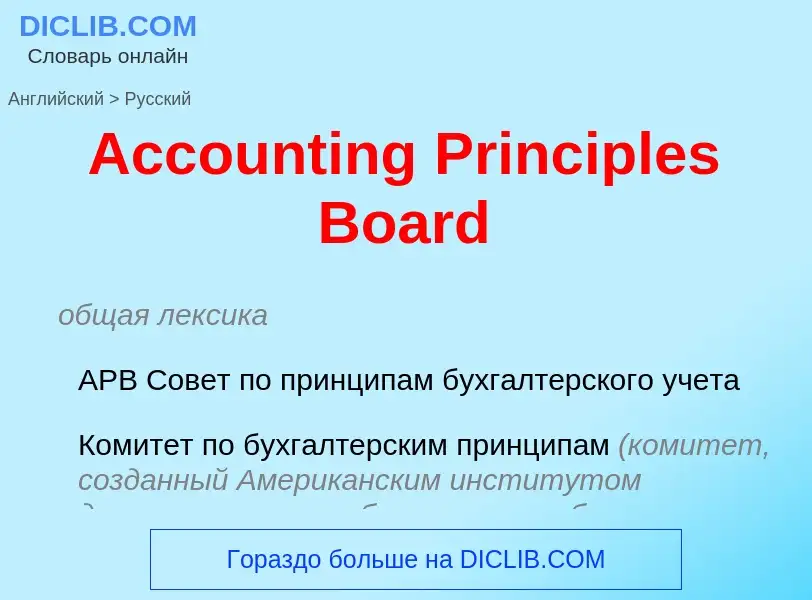Traducción y análisis de palabras por inteligencia artificial ChatGPT
En esta página puede obtener un análisis detallado de una palabra o frase, producido utilizando la mejor tecnología de inteligencia artificial hasta la fecha:
- cómo se usa la palabra
- frecuencia de uso
- se utiliza con más frecuencia en el habla oral o escrita
- opciones de traducción
- ejemplos de uso (varias frases con traducción)
- etimología
Accounting Principles Board - traducción al Inglés
общая лексика
APB Совет по принципам бухгалтерского учета
Комитет по бухгалтерским принципам (комитет, созданный Американским институтом дипломированных общественных бухгалтеров для разработки стандартов финансового учета; действовал с 1959 г. по 1973 г.; предшествовал созданию независимого Совета по стандартам финансового учета)
Смотрите также
бухгалтерский учет
стандарты (бухгалтерского) учета (стандарты ведения учета и составления отчетности, включающие правила и методы измерения, оценки и раскрытия информации о хозяйственных операциях)
бухгалтерский учет
учетная практика (применяемый на практике метод ведения бухгалтерского учёта, соответствующий выбранной учетной политике; может не совпадать с теорией)
Definición
Wikipedia
The Accounting Principles Board (APB) is the former authoritative body of the American Institute of Certified Public Accountants (AICPA). It was created by the American Institute of Certified Public Accountants in 1959 and issued pronouncements on accounting principles until 1973, when it was replaced by the Financial Accounting Standards Board (FASB).
The APB was disbanded in the hopes that the smaller, fully independent FASB could more effectively create accounting standards. The APB and the related Securities Exchange Commission were unable to operate completely independently of the U.S. government. According to the SEC, "the overall record of the APB was a reasonably good one, but it seems likely that a smaller full-time body directly in control of its research holds promise of more success". Among others, Abraham Briloff was critical of some actions of the Accounting Principles Board. In response to APB 17, Briloff referred to the APB as the "Accounting Pragmatics Board".
Of the 31 APB opinions and 4 statements, several were instrumental in improving the theory and practice of significant areas of accounting. Many have been superseded by FASB pronouncements; 19 opinions still stand as part of generally accepted accounting principles:

